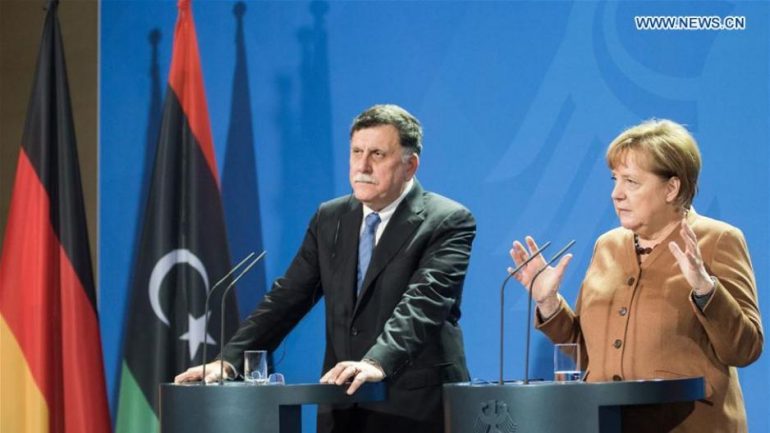Libyan Prime Minister Fayez al-Saraj promised in Berlin on Thursday that he would take action to end the "suffering" of migrants in his country, although the National Unity Government (NUP), which he leads, controls only part of it. Libyan territory, as Chancellor Angela Merkel emphasized.
"The numbers are staggering: we are talking about 500.000 immigrants outside the detention centers and 20.000 inside the centers managed by the Interior Ministry," Saraj said during a joint news conference with the German chancellor in Berlin.
"We are ready to work with all regional and international organizations to end the plight of migrants and help them return to their home countries," added the head of the JRC, which is backed by the international community.
However, much of Libya is beyond the control of his government and is held by paramilitary groups. Too often, migrants hoping to cross the Mediterranean and reach Europe fall into the hands of traffickers in these areas.
"The prime minister (al-Saraj) has emphasized that many (immigrants) are not in known camps. We have no access, there is no access to the approximately 500.000 (immigrants) who are likely to live in conditions that cause outrage. "There is still a lot to be done," said the German chancellor.
At the same time, Angela Merkel urged the Libyan prime minister to offer international organizations "better access" to the camps under the control of his government.
Fayez al-Saraj also promised that the results of an investigation into the recent revelations of CNN about the sale of black immigrants as slaves in Libya would be made public soon.
"We express our rejection and condemnation of these practices if they are actually followed," said the Libyan prime minister.
On Wednesday night, the African Union announced its intention to help repatriate the 20.000 migrants in Libya over the next six weeks.
Following the uprising that broke out in 2011 and led to the overthrow of Muammar Gaddafi's regime, Libya was fragmented into areas controlled by rival armed groups. The country also has two governments, the Tripoli-based KEE and an rival in the east, backed by General Khalifa Haftar, the leader of a force he calls the Libyan National Army.
